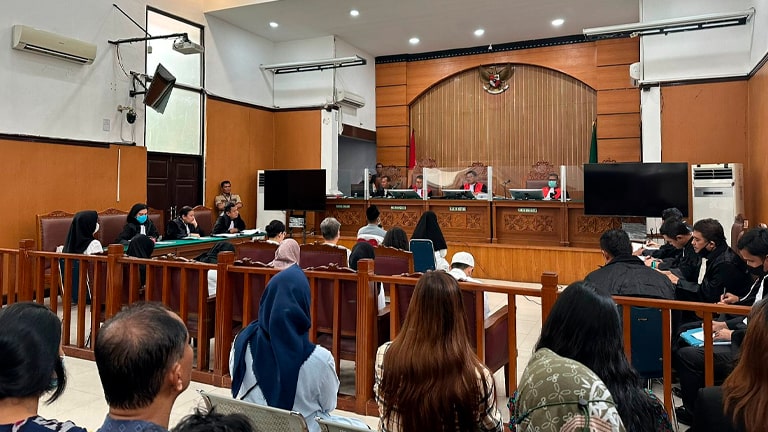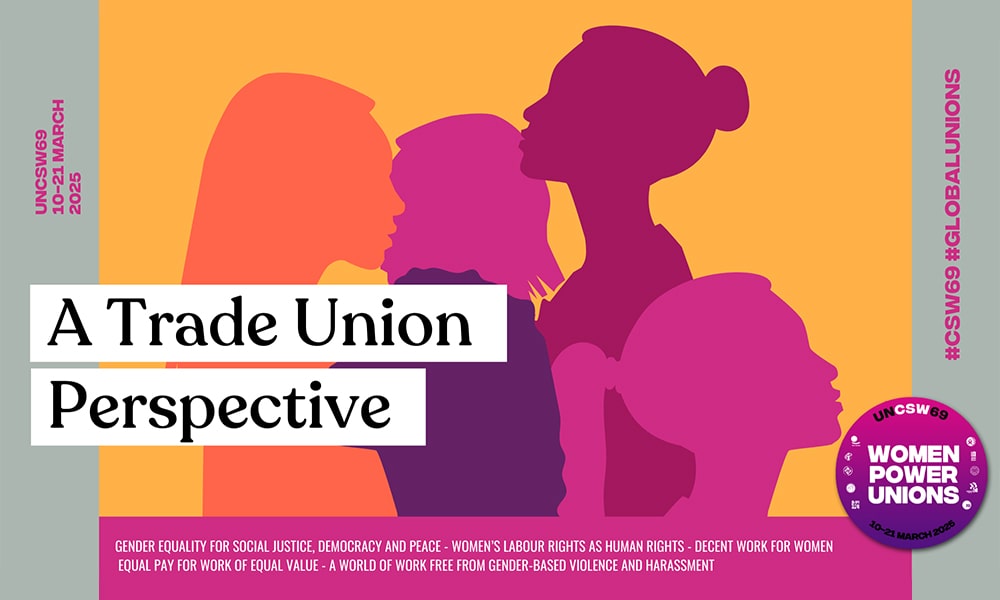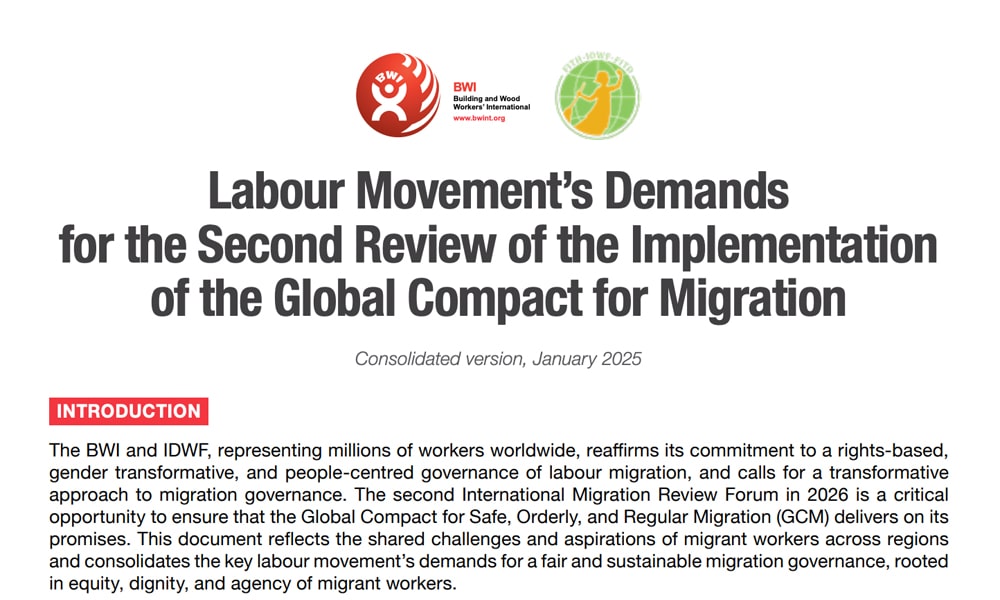
Today, July 5th, the third hearing of the legal process initiated by domestic worker Siti Khotimah against nine individuals, including her employers, who subjected her to physical and psychological abuse, torture, and rape, took place at the South Jakarta District Court. The survivor, a 23-year-old woman from Pemalang, Central Java, had been working as domestic worker at an apartment in South Jakarta since April 2022, and was reportedly tortured from June to December by her employing family (husband, wife and daughter) alongside six workers that serve in the same property and were instructed by the employers to abuse her.
For three months, Khotimah faced all types of brutal harassment: she was chained at the dog’s room, forced to eat dog feces and drink her own urine, splashed with boiling water, and suffered sexual violence. As a result, her body has numerous wounds, and feet and hands have been severely affected (open fracture, burn, blisters). After surviving the abuse, she was hospitalized for four months, but still requires surgery as she is unable to walk properly. Needless to mention, the abuse caused severe trauma.
Siti Khotimah escaped from that torture when her employer ordered the family driver to throw her into the river, but he decided to leave her in her hometown. After knowing what had happened to Siti and seeing her injuries, her family immediately reported the case to the Police. Nine perpetrators were later arrested and are currently undergoing trial.
While awaiting the resolution of her case, Khotimah is staying in Jakarta with her parents. Thanks to the support of the National Network for Domestic Worker Advocacy – Jala PRT, the organization led by Lita Anggraini, Siti has a place to stay, food, and access to the medical treatment she needs.
Today be a decisive day for Khotimah, who has already testified before the judge on two occasions without positive results. So far, the justice system has been failing her, further exacerbating her emotional state and subjecting her to constant revictimization. Moreover, it is “curious” that the court has last-minute changes to the dates of all hearings, effectively diverting attention from the case.
For all these reasons, the International Federation of Domestic Workers calls on journalists, allies, and labor and human rights organizations worldwide to stand in solidarity with Siti Khotimah, to bring visibility to her case and those of many other domestic workers who are victims of abuse in Indonesia, and to demand justice.
The court hearing will continue on July 10. We hope this time, justice will be served.
The case of Siti Khotimah in context
At least 5 million domestic workers serve as the invisible backbone of Southeast Asia’s largest economy, taking care of upper-middle-class families. Most of them are women and girls from rural areas who have little education and often migrate to big cities searching for a job. They have grown up in a culture in which they are expected to keep quiet and accept their fate. Many people still regard domestic work as servitude– as separate from employment.
Paradoxically, the largest democracy in the world has not a national law to protect domestic workers. Consequently, domestic workers are employed informally without a contract, regular working hours, minimum wage, or social protection. Thus, they are susceptible to unfair treatment, including extremely low pay, withheld, or arbitrarily cut wages, long working hours, no regular time off, and poor living conditions. Plus, as most of them work under the live-in modality, they are physically and socially isolated, leaving them particularly vulnerable to exploitation, assault, and modern slavery.
A law is urgently needed to realize the protection of domestic workers under the efforts to support human rights principles. It is time for the Domestic Workers’ Protection Bill (RUU PPRT), which has been languishing in the Congress for almost 20 years, to be passed into law, as President Joko Widodo recently announced. It is mandatory to protect a workforce composed of 4 million women, of which 30 per cent are girls, and recognize domestic work as equal to other professions, providing domestic workers with essential labor benefits and human rights. As article 27 of the Indonesian Constitution stipulates, “every citizen has the right to work and a decent living for humanity”.
Every day without a domestic workers’ law, is a day with a new victim.






